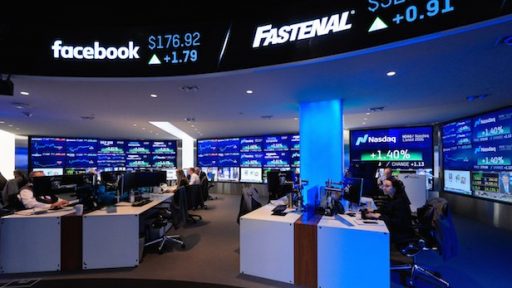- Home
- >
- Fundamental Analysis
- >
- Wall Street begins to believe that the trade war will only worsen

Wall Street begins to believe that the trade war will only worsen

Wall Street seems to be trying to ignore trade and war and focus on the Fed, for example, things will not improve. On the second day, stocks were defeated, and investors were literally flooded with predictions that the White House would enter a "full regime" of tariffs on all Chinese goods. Wall Street is beginning to realize that this war alone is experiencing escalation and will last for a long time. And the consequences for consumers and the world economy will get worse.
"I still think that there is a risk of a complete conflict, and that we are approaching that day with each passing day," says Ed Keon, QMA chief investment strategist,
According to Keon, if the war escalates further, it could lead to market corrections of 10% or more. He himself is now more in cash and has increased in bond positions, expecting only a worsening of the situation.
"We believe that Trump's administration is likely to bring additional tariffs on goods for nearly $ 300 billion with a 25% duty increase." In our view, the new tariffs will come into force before the end of 2019, most likely in Q3 after the meeting between Trump and Xi at the G-20 Forum in June "- writes Chief Economist for Nomura, Lewis Alexander.
Lewis believes it is possible to follow a certain period of truce after the G-20. However, it foresees a new failure of the negotiations later this year, which will lead to a new tariff increase.
According to Bank of America, the development of the war was only worse than expected. They forecast that US 10-year-olds will reach 2.6% by the end of the year than the previous 3% given the consequences of the conflict and the lighter policy of central banks.
With Goldman, economists still hope that trade conflict will be resolved safely. But if that does not happen, the impact on the US and Chinese economies will be greater than economists predict, and inflation may rise dramatically.
According to the bank, if the US imposes new tariffs of 25% on all Chinese imports, US PCE inflation may rise by 0.6%, compared to an increase of 0.2%. This would hurt US GDP by 0.5% and Chinese 0.8%. Current PMI data from Europe and the US are already showing delays in the manufacturing and service sectors.
Source: CNBC
 Trader Martin Nikolov
Trader Martin Nikolov Read more:
If you think, we can improve that section,
please comment. Your oppinion is imortant for us.











